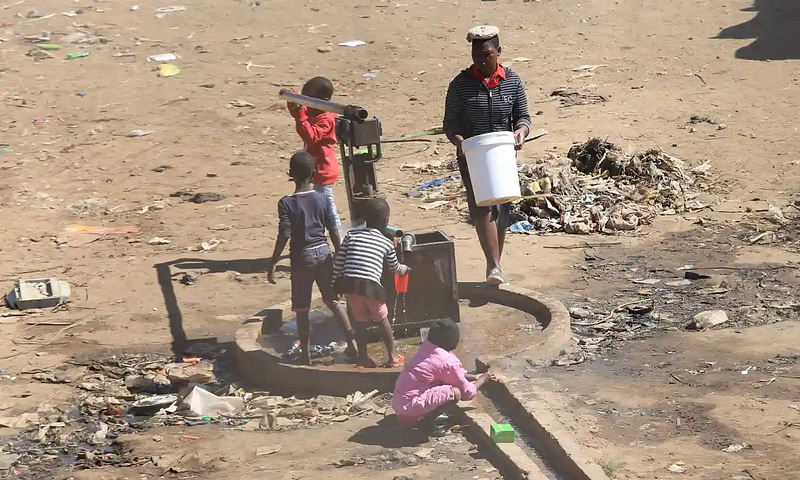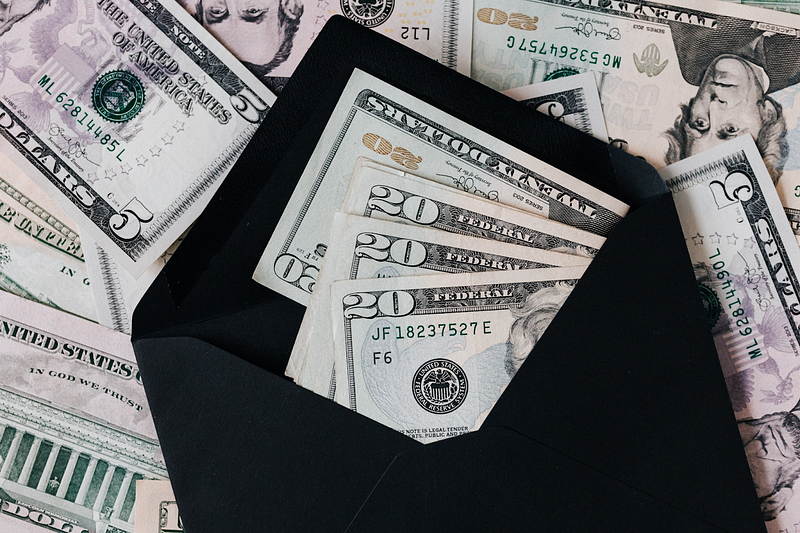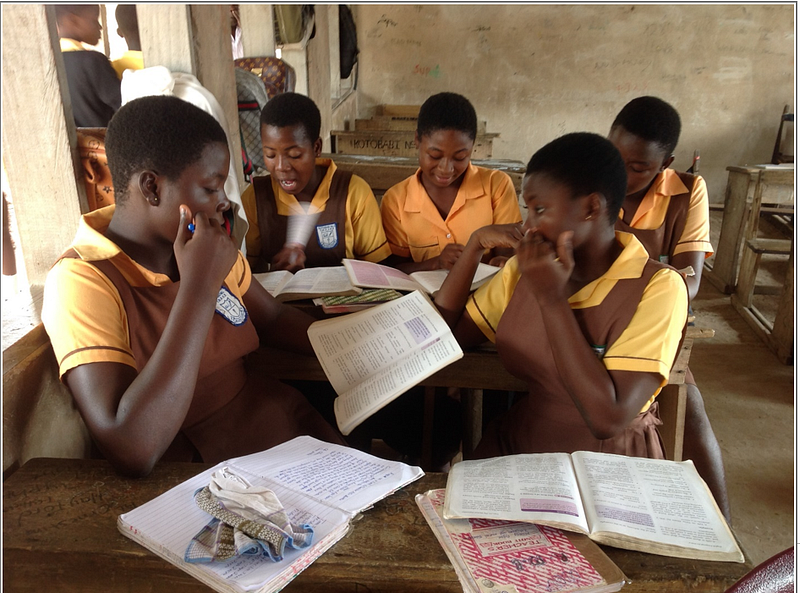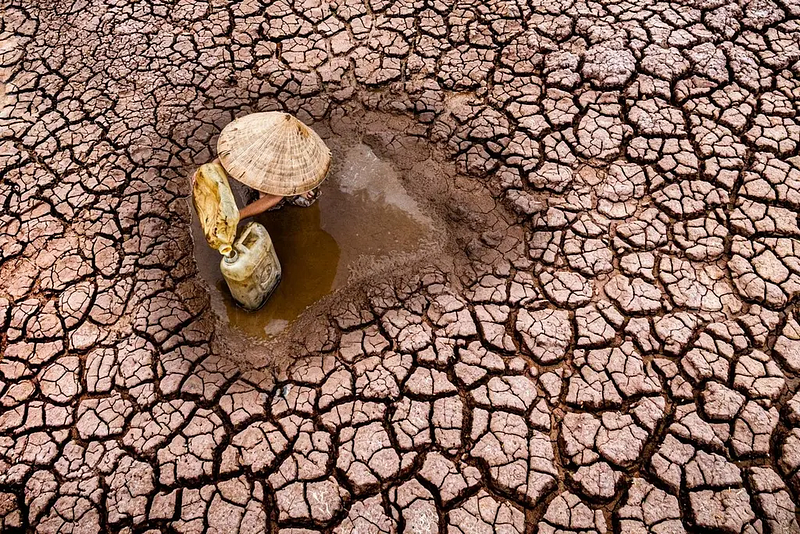The Poor Need Us!
How do you survive with a salary below RM2000 monthly? Is it enough for your family? Are you rationing your meals so you can have three…

How do you survive with a salary below RM2000 monthly? Is it enough for your family? Are you rationing your meals so you can have three meals daily? I am sorry. Let’s talk poverty.
I will dwell on the definition of poverty first. Poverty is that huge financial weight on someone’s shoulders when they can’t fulfil their basic needs; in terms of food, shelter and security. The World Bank Organization describes poverty as a ‘call to action’. For sure, levels of poverty differ when analysed from the perspective of standard of living. Being poor in England is different from being poor in Zimbabwe. For example, approximately 50% of the civilians in Zimbabwe suffered from extreme poverty in 2020 because of the economic impact of the Covid-19 Pandemic.
It is stressed upon that money cannot buy you happiness. For sure, your happiness comes from the subtle moments of life whereby it was heavily dependent on the situation, rather than the money. However, while money cannot buy you happiness for sure, being poor makes you miserable. There is no ‘good side’ to being poor. The glass is half empty. There is no ‘good side’ to you worrying about how to survive the week or wondering if tap water would be enough.
According to Dorothee Spannagel and Anita Tiefensee from the Economic and Social Sciences Institute (WSI), income inequality has skyrocketed despite the economic boom. Income inequality refers to the phenomenon whereby income is not distributed equally across a population and this conundrum is currently rampant on a global platform.
The rich getting richer and the poor getting poorer is as matter of fact, an axiom coined by Percy Bysshe Shelley to denounce the faulty scales of today’s mechanism of economics.
This is what Davide Malacrino stipulates:
‘Wealth begets wealth’
This cyclical sentence (beginning with wealth and ending with wealth) is the truth of an actual cyclical reality.
It is easy for children from rich families to inherit family wealth and to build from that. They get higher returns on their investments as well since they are born in opportunistic matrixes. And this gets generated on and on. They are also more prone to get higher education; consequently, higher paying jobs whilst the poor Malaysian family man walking home tonight struggles with 2 jobs paying a minimum salary all because he was born in a less fortunate matrix. Oh and yes, he has an entire big family whose bellies he tries so hard to warm with food, day and night. Most of the time, unfortunately, those jobs do require blood, sweat and tears.
Poverty can get even more exacerbated with corruption and nepotism.When you are wealthy and resourceful, you get away with a lot of things. Money corrupts men.
Rich people also build connections with affluent people who aid in building their economic empire in today’s capitalistic World.
One thing that I have gathered in my twenty years is that the proletariats are often stigmatised as ‘lazy’, ‘drug addicts’ or ‘dumb’ by the bourgeoisies for not working their heads off. It is often the truth that the rich condemns the poor for not working when they, as matter of fact, sit on a pile of gold without so much as lifting their little finger. Most of their wealth are inherited and invested in. When the media finds out that the affluent people are drug-addicts or promiscuous, the results are scandals that are only targeted at their fame, followed by an ‘understandable’ shrug of the shoulder. When the poor are stigmatised as ‘lazy’ or ‘drug-addicts’, it is often a weapon used to deny them healthcare access or to restrict aid programs. Moreover, the wealthy people accused of the same stigma as the poor, simply do not receive the same backlash because they can afford their privacy and their ‘invisibility’. We oppress the poor for the same conundrums and we thus deny them of their human rights. Hypocritical, isn’t it?
I would like to address the asymmetry of power established from the exploitation of cheap labour as well. In China, it is said that the labour force are so exploited that every bit of their physical strength is painstakingly extracted with how they have to work extra hours to make ends meet; since normal minimum wage is so extremely low for usual shifts.
A lot of exploitation is done for the purpose of high end brands too. To satisfy the expensive taste of the rich, we jeopardise the most vulnerable of our society. The poor are the sacrificial lambs to the life of bling a lot of people swim in. While they bathe in this morass of luxury, the labourer who has worked his hands bloody is sweating, but still digging. Moreover, while we opt for low prices, we do not realise that the sad reality behind it is probably a bunch of exploited workers who have been denied every bit of their human rights for a dry morsel of bread for lunch.
This baleful disregard of humanity demands our attention. Let me make it clear one more time and a second time.
The rich are getting richer and the poor are getting poorer.
The rich are getting richer and the poor are getting poorer.
But how can we sharpen our focus on eradicating this social dilemma you ask?
We have a myriad of policies attacking this social conundrum.
Ways to eradicate poverty
EDUCATION
One of the ways to break this painful cycle is to invest in education. Knowledge has the power to open doors and close some (the road to drug addiction, for example). It has been deduced that while investing for inclusive education eliminates poverty, there are political obstacles that hinder countries from going further with it. Once this political, illusory veil is lifted off, we can take this humanitarian step towards eradication of poverty, or at the very least, bridge the gap. Obviously, one can only hope that we start focusing on the more important affairs of life rather than the superficial ideology of politics.
CLEAN WATER
As hyperbolic as it sounds, providing clean water is such a dealbreaker. Forcing people to consume unsafe, polluted or infiltrated water places them at risk for waterborne diseases; for example, cholera, hepatitis A, diarrhoea or even polio. Water is precious, water is gold and access to clean water is a human right, backed up by SDG 6 of the United Nations:
‘Clean water and sanitation’
However, it is time consuming to constantly walk up to streams for the daily use of water everyday. Time is money in a lot of context, is it not? Moreover, waterborne diseases require financial aid for medical assistance and that one takes sufficient rest. Education is interrupted in this process. Children suffer the most from this interruption because of their medical issues, generated by their unsafe environment. The statistics are that in accordance to the World Health Organisation, one in three people around the World don’t have access to safe drinking water .
Yes, you’re well off if your water is clean; because that isn’t the case for a lot of poor countries. Allow me to traumatise you further: globally, at least 1.8 billion people have a potable water source that is contaminated with faeces. Diseases will not stop; neither will the poverty cycle.
ACCESS TO TECHNOLOGY AND INNOVATION
Being able to log in on your laptop and get access to globalised information in the snap of a dinner is a privilege for some. Technology and innovation catalyse our path to wealth accumulation since job applications are done online and the internet is a platform where educational sources stem from. According to the Borgen Project, in Bangladesh, 60% of the rural poor do not have access to grid electricity. Having mobile technology provides access to better markets, especially for farmers in developing countries. Science promotes efficiency and can be very cost saving. It can even generate income expeditiously. Consequently, an increased level of salary helps to improve living conditions, convenient for the slow and gradual eradication of poverty.
RAISING MINIMUM WAGE
In a lot of countries, people surviving with minimum wage barely get through the month with that amount of money. Holistically, no significant retirement savings can be conducted and no investments for further income can be generated. One way to improve the standard of living is definitely to raise the salary.
Recently, Malaysia raised the minimum wage salary by 25%, from RM1200 to RM1500. And I guarantee, it has lifted off the burden of some and they can breathe a little easier now.
But is it enough to enable a person earning minimum wage to be now classified to be “above poverty line”? In 2013; at the state of the union address, Barack Obama said that no one who works full time should have to live in poverty. Keeping that as a goal, we can further analyse how Malaysia has attempted to bring such a statement into fruition. The government is under the legal obligation to review the minimum wage every 2 years so it correlates with socio-economic changes, as per the National Wage Consultative Council Act 2011. Malaysia is a good example to inspire from when it comes to bridging the gap between the poor and the rich , albeit the country is lacking in some policies. For sure, maybe the minimum wage amendment was a political move, but as long as it relieves our fellow Malaysians of their daily struggles, we can embrace the change.
VERDICT
Breaking the matrix is hard; but we can empower the poor and the underprivileged. It is undeniably hard for them to make ends meet. Moreover, let’s make it possible for the poor to ask for help without us looking down on them. They don’t want our pity; they want our genuine support. Some of them live with such shame that they won’t ever ask for help; they’d rather dwell in their misery. Some NGOs really give their all to the philanthropic goal of eradicating poverty`. While they have different methodologies to go about their plan of action, some of them accept donations. We have the ‘Akshaya Patra’ in Bengaluru, India, ‘the Green Shoots Foundation’, the ‘Action Against Hunger’, the ‘BRAC’ in Bangladesh and the ‘Water School’ in Uganda. Being poor in a capitalistic World whereby Birkins are given so much importance, is psychologically challenging for our citizens. It puts their self worth into question and makes them believe that superficiality is the key to survival in 2022. Let us put a stop to this madness and join hands in making it a little bit better for our struggling friends.
[Written by: Sahaduth Kawthar. Edited by: Balvin Dhaliwal]





